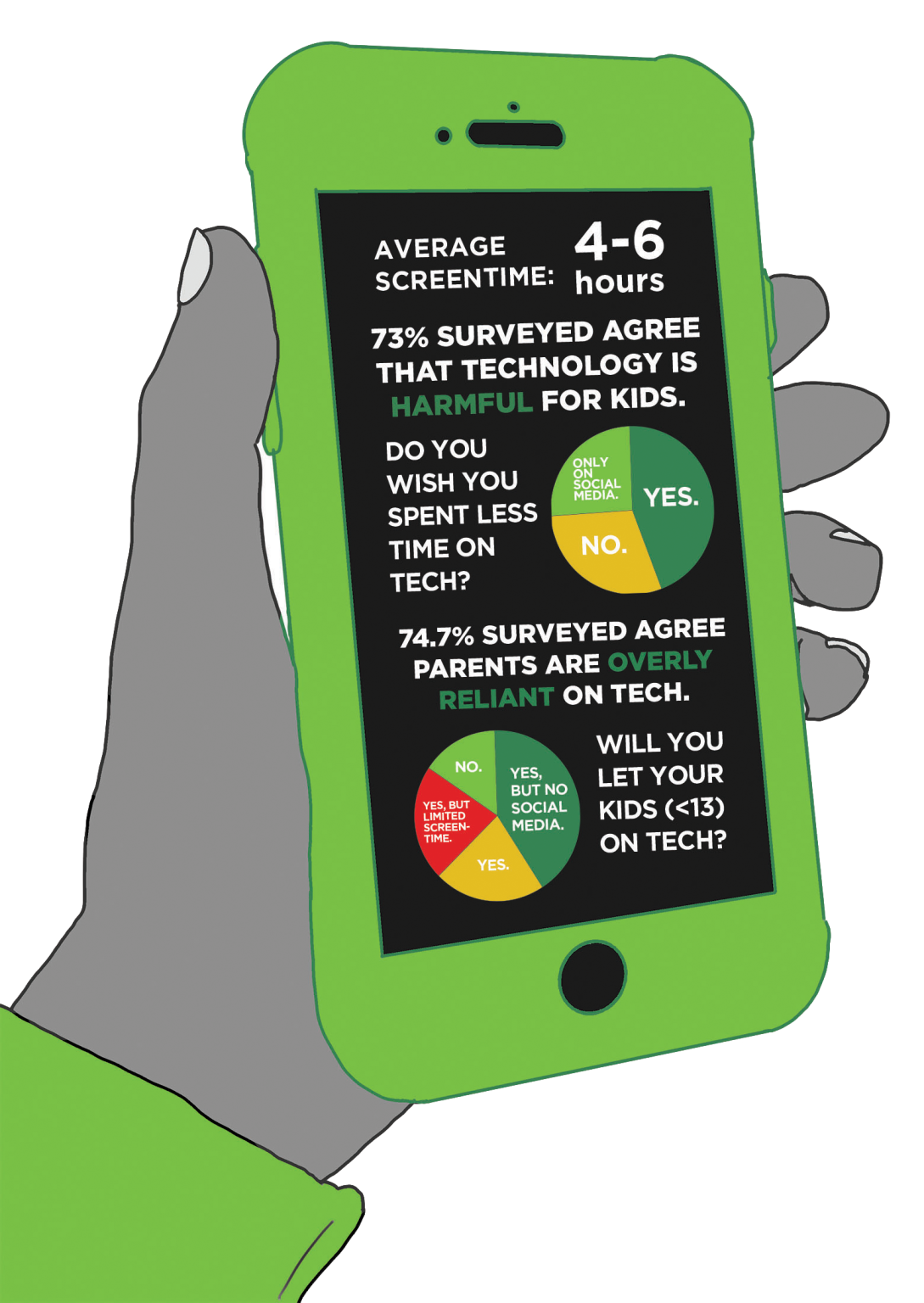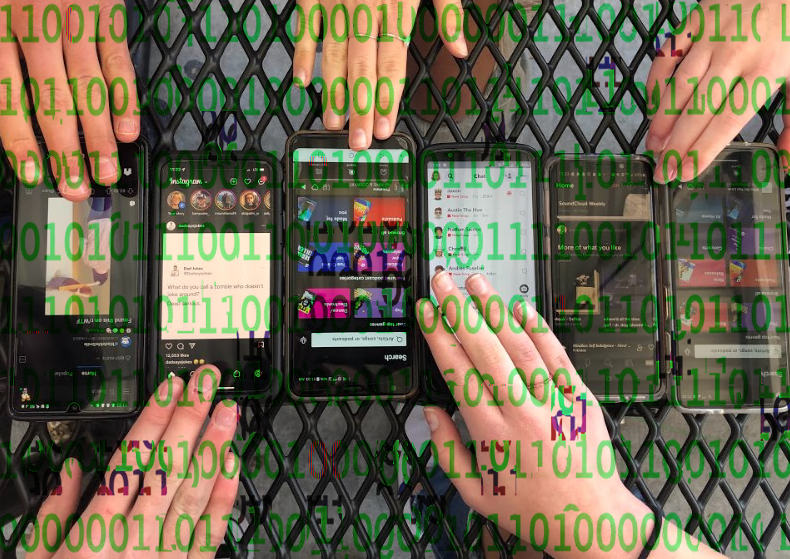We have heard it all before.
Teachers, preachers, and parents alike have been sounding the alarm against screen time and social media ever since their teengers received devices- a momentous event that happened for many PRHS students around the ages 10-12 according to a school-wide survey.
Generation Z, defined here as the generation born from the late 1990’s to the early 2010’s, was born into a changing world, where cell-phone ownership was becoming the standard and the consequences were majorly unknown. The Pew Internet & American Life Project survey reports that, in 2004, 46% of students surveyed owned a cell-phone. Almost four years later, in early 2008, that number grew to 71%.

With this growth came challenges: Technology has been proven to shorten the attention span, damage social and emotional intelligence, impair brain development, among other things. Social media has been linked to Gen Z’s mental health crisis and the often unmoderated nature of the internet makes exposure to inappropriate content at a young age likelier than ever.
Yet our generation is trapped. For many, the internet raised us from childhood and now serves as our closest companion: a study from Common Sense Media displays that 50% of teens “feel addicted” to their phones, and about 70% of teens surveyed at PRHS wish they spent less time on social media and/or technology in general.
But do we plan to pass on this complex -perhaps even toxic- relationship to our children? Have we served as a test run never to be repeated? Or, despite it’s problems, does technology have a mostly helpful big role to play in children’s lives?
The answer, for many, seems to be a series of compromises and constraints.
62% of students claim that social media is “sometimes” a time waster, 21.8% think that it is, and 16.1% claim that it isn’t. Yet the majority of students (49%) surveyed say that technology isn’t as harmful as it’s made out to be, and such an argument does have some merit.
At school, for example, technology has been proven to be a positive force rather than a negative one. Online learning allows for information to be more easily accessible than ever and reliance on technology for teaching in class has become the norm for schools due to distance learning methods brought over from the height of the COVID-19 pandemic. A simple truth is reflected here: without technology, school would have become near impossible to put on safely for almost a year.
Sophomore Bryson Wakeman, who first received technology at four years old, is intimately aware of the cons of technology.
“In some ways social media has given me a darker sense of the world,” he said. “I feel like (it) sort of drained the (fun of) life in some ways.”
Wakeman’s screentime is at 7-8 hours per day, not counting schoolwork.
“(Some) people get gratification in hikes and walks, (but) I always contemplate that I could’ve just had fun on my phone,” Wakeman said. “I don’t want that for (my kids.)”
Despite this proclamation, Wakeman maintains that his experience with technology hasn’t been all bad: “I don’t regret my relationship with technology (because) I honestly thinks it’s done a lot of good in my life and the life of others,” he said. “I use it for reminders, entertainment, and relaxation. My social life is a whole lot better and communicating with people is a whole lot easier.”
Wakeman ultimately says that he would restrict technology until his children are “around ten” and restrict social media until about 12-13.

But Bearkitten teacher of 21 years Brenda Matthysse notes how fighting technological addiction is more than simply not letting your kids have phones. “Technology is such a huge part of our world and I do not believe students see how highly dependent they are,” she said.
“There are some positives of technology for sure. Students who may feel isolated can find some important connections and validation and support through technology… but on the flip side, if students have open access in terms of time and content, it can be very unhealthy.”
She has noticed a difference in the young children she works with as technology has become more popular: “I have seen that students struggle to focus on simple lessons in school and lack engagement in things they used to,” Matthysse said. “There is this instant gratification element to technology that sometimes real life can’t compete with.”
Young students aren’t the only ones to blame though: 58% of parents admit to using technology to babysit their children when they don’t want to, and most adults have around 8 hours of screentime per day.
Matthysse has seen the effects of such information in action.
“Often parents are on technology the same time the student is and this contributes to the lack of connection and understanding in a family environment,” she said.
She thinks that “ongoing conversation” about the “pros and cons of technology” is paramount to maintaining connection.
“When my children were younger, I tried to be as knowledgeable as possible about social media platforms and limited my child’s ability to access some apps,” Matthysse said, and this conclusion seems to be most advisable.

The problem with technology is, of course, is not the educational videos, nor the creation of digital art or writing that requires some hefty screentime.
What parents -or anyone- should really fear is the blankness it inspires, as this generation -my generation- mindlessly scroll, expressionless and unmoving for hours, feasting on nothing at all yet finding themselves empty when deprived of it.
Harvard University enrolls some of the brightest minds of the new age, and recent statistics show that most students spend under an hour a day on social media sites such as TikTok, Instagram, Twitter, etc. 60% of these same students do community service, and over 60% of these students held two or more leadership positions in high school. They use their phones, yes, but they are not consumed by them.
For the next generation, limiting screentime is important.
But what’s more important is to teach kids to have lives outside the internet, and when they do use technology, use it as a tool for creation, communication, and expansion. Because in the end, technology is a thing to use, not to be used by.








